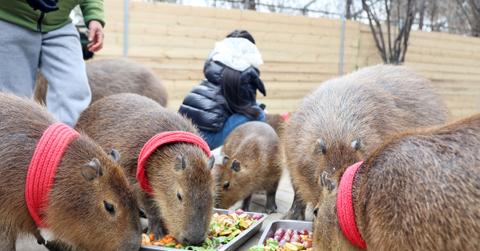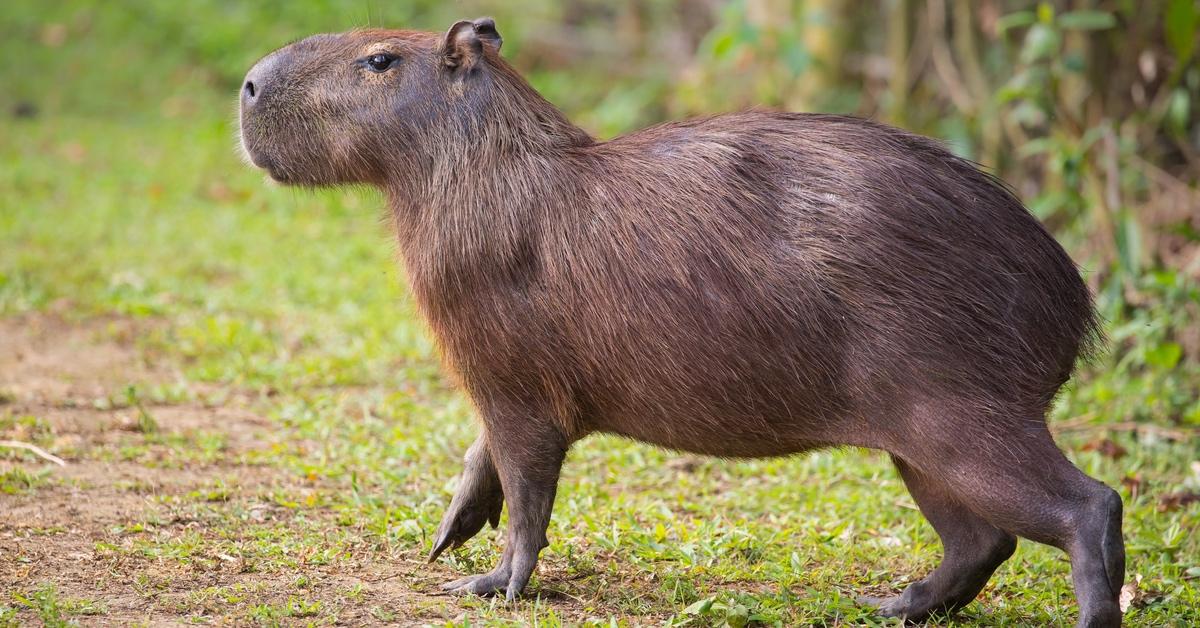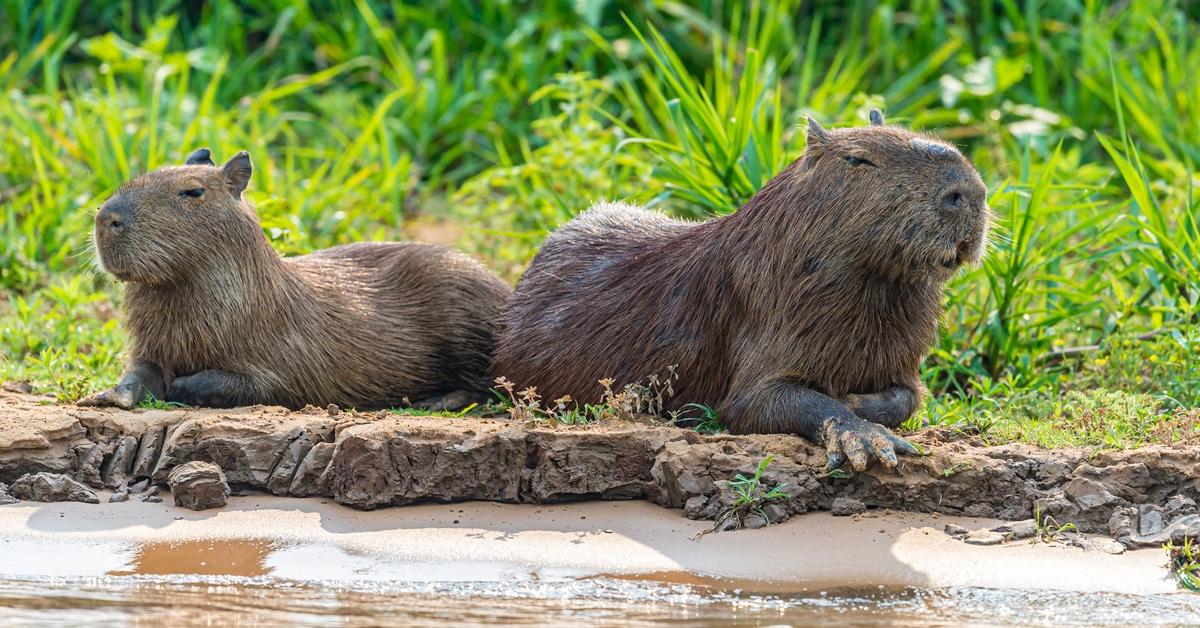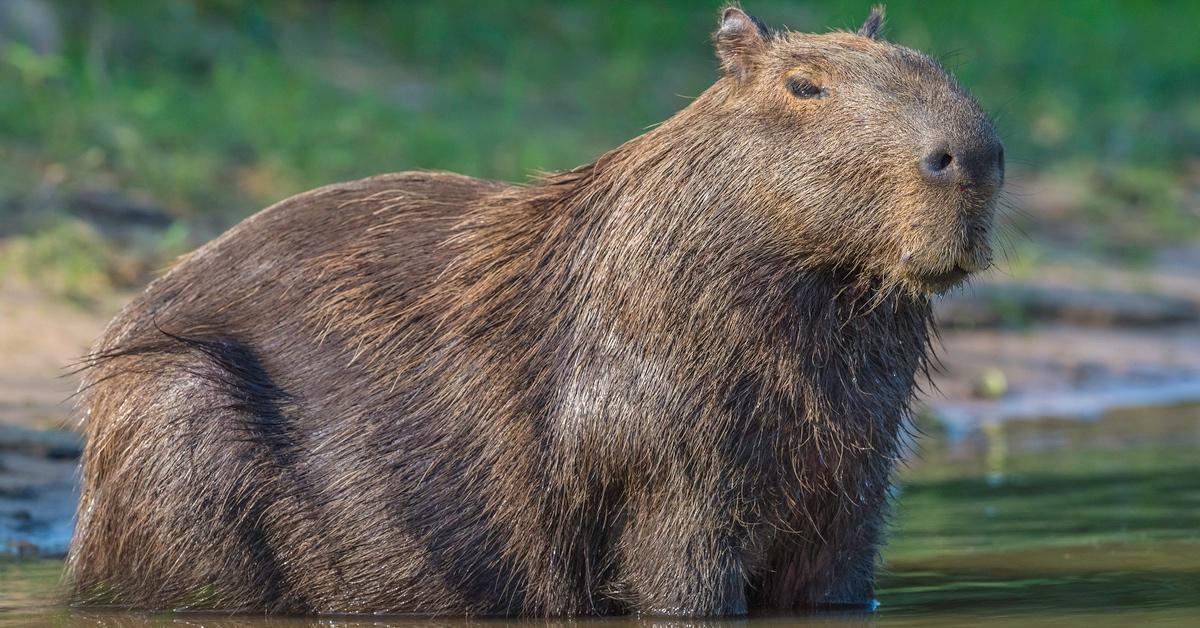Capybaras Are Some of the Animal Kingdom's Most Chill Creatures: Here's Why
Published Feb. 7 2024, 3:40 p.m. ET

There’s a neverending stream of cute animal content online. You could watch hedgehogs munch on cat food or tiny spiders leap between platforms in their decked-out enclosures. Watching cute animal videos all day might decrease your anxiety, but there's one animal in particular that seems to have captured the attention (and the hearts) of viewers: capybaras!
It seems like every other week, someone is posting hilarious memes or adorable videos of capybaras, which have been lauded on the internet as an "animal that gets along with everyone." But why are capybaras so "chill"? And can you keep them as pets? Here's what you need to know about capybaras, explained.

Why are capybaras so chill?
Capybaras don’t have an aggressive or hyperactive nature because they’re herbivores, per Live Science. The same article describes their relaxed lifestyle of lounging in water-based habitats and avoiding predators by hiding in aquatic plants.
Researchers with Scientific Reports even studied how capybaras routinely kick back in hot springs to soothe their skin, giving them the appearance of besties hanging in a hot tub.
Discover Magazine spoke to Brookfield Zoo's curator of mammals, Joan Daniels, who explained why capybaras seem so relaxed.
"They just have that calm demeanor about them, but that may also be part of their survival techniques in the wild,” she said. “They’re quiet and stealth and move slowly and methodically, and I think a lot of it is that’s what people are seeing."

As for those photos of capybaras with other animals, such as alligators or cats, they're not Photoshop! President of the ROUS Foundation Melanie Typaldos told Discover Magazine, "I’ve seen it in the wild, where they’re just sitting right next to a caiman. If it weren’t hungry, it could just jump out there and eat them. But [the capybaras] don’t seem to care. I don’t know why."
Can capybaras be pets?
There are 10 U.S. states where it's illegal to have a capybara as a pet, compiled by World Population Review. The noted reasonings vary, like declaring the capybara an invasive species or a dangerous animal because it doesn’t have a long history of domestication. Those states are:
- Alaska
- California
- Colorado
- Connecticut
- Georgia
- Illinois
- Massachusetts
- Oregon
- Vermont
- Washington D.C.
However, 40 other U.S. states allow the capybara as a pet. Check your state and county laws to determine which permits or licenses you would need to adopt one. If it’s legal to import them, you can always browse capybara listings to find one needing a home on sites like Exotic Animals for Sale.
The U.K. also allows capybaras as pets as long as each owner applies for a special license with their local authorities, according to PBS Specialist Pet Travel.

People in Australia can’t import a capybara because they’re not on the list of approved mammals, as defined by the Australian Department of Agriculture, Fisheries and Forestry.
If you must have a capybara, consider adopting them before shopping. Shelters hosting exotic or domesticated animals often euthanize them to make room for those dropped off on their doorsteps. Capybara owners often sell their pets when they can’t care for them anymore, so you could save your future best friend from potential euthanasia shelters by avoiding capybara breeders.
That said, capybaras are not domestic animals, and will not behave in the same way as a dog or a cat. It's imperative that no matter how friendly or cuddly capybaras seem, they remain in their natural habitat — the wild — where they can thrive for many more years.